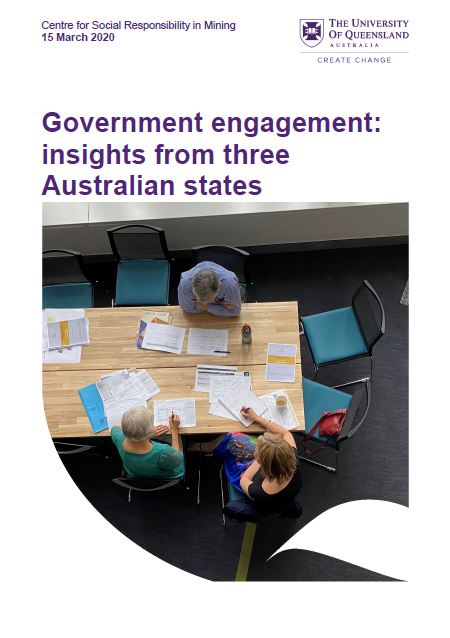Government engagement: insights from three Australian states
This project recognises that government must be part of the conversation about mine closure, and about a regulatory framework that minimises negative impacts while realising positive impacts from transition.
Australian mining law operates at federal and state/territory levels, with each level having different roles and responsibilities in resource development and mine closure. Ownership of mineral and petroleum resources is vested in the states/territories and onshore extractive activities are regulated primarily at the state and territory level. However, some federal laws affect the onshore resources sector, such as policies around company taxation, foreign investment, immigration, competition, trade and customs, company law, international agreements and native title. As well, federal environmental legislation, notably the Environmental Protection and Biodiversity Conservation (EPBC) Act, can affect the development of resource projects with national environmental significance. Accordingly, this project concentrated on determining state government expectations and requirements for operators to leave a positive legacy for future generations, and any direct state responsibilities to achieve socially responsible mine closure and smooth regional post-mining transitions.
Language: English
Publisher: The University oif Queensland
Region: Australia
Type: Report
CITATION
Everingham, Jo-Anne (2020). ‘Government engagement: Insights from three Australian states’. Centre for Social Responsibility in Mining. University of Queensland: Brisbane.

